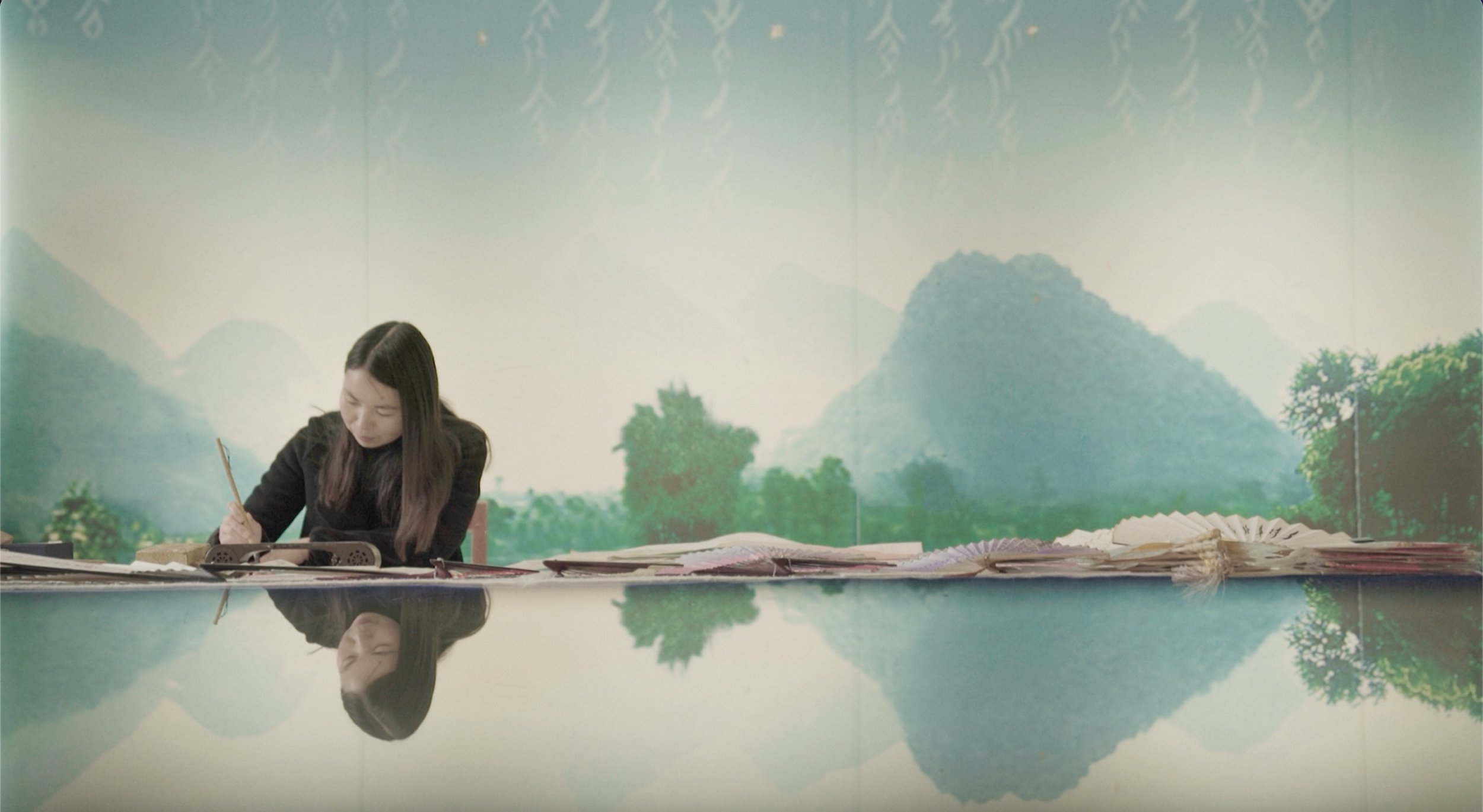Film review: Hidden Letters takes a subtly subversive look at an ancient, secret language
Far more than an artistic portrait, documentary on Nushu connects oppression of women in China’s past with its present
In Hidden Letters, young women keep the ancient language of Nushu alive, still using it to find sisterhood and solidarity.
VIFF Centre presents Hidden Letters on December 23 and 24, and 26 to 30, and January 1, 3 and 5
HIDDEN LETTERS is a beautifully shot documentary about the young women in China who keep alive a secret language developed centuries ago. But it proves much more than a pretty, elegiac film, with a surprisingly biting look at the way women are still treated in the country today.
The language called Nushu was practised among women in the southern Jiangyong region at a time when their feet were bound, they were forbidden from learning to read or write, and had to keep their mouths closed and eyes down around men. It took form in delicate calligraphy, aching poetry, and clandestine messages to one another.
Directors Violent Du Feng and Quing Zhao focus on two women obsessed with keeping the art form going, juxtaposing their pursuit with images of rural women hard at work in cobbled streets, rice fields, and hutong courtyards; the haunting Nushu songs of the score adding to Hidden Letters’ melancholic mood.
In the film, Nushu master Hu Xin silently worries as all-male government officials seek to commercialize the museum devoted to the women’s art form. In her personal life, she’s left her abusive husband, and frets about what that’s done to her reputation: “My achievements don’t make me a good woman.” Meanwhile, we follow singer and Nushu practitioner Wu Simu to meet her fiance’s rural family—where she’s quickly directed to work in the kitchen. Later her beau tells her it will soon be time to give up her “hobby” and try to get pregnant, then hands her a gut-wrenchingly bitter traditional fertility drink to gulp down.
Du Feng and Zhao slyly weave in increasingly absurd scenes that underline the fact that women may still need a secret language of subversive power in a China that has seen momentous economic and social change. Little girls in tiaras learn to prance and pose demurely under Nushu banners at a “princess camp”. A male tourist-expo visitor informs a Nushu calligrapher that she’s leaving too much white space around the letters. And a CCP visitor mansplains to the women that the Nushu art form isn’t a charity, suggesting it has commercial potential marketing potatoes.
Elderly calligrapher He Yanxin, who gently mentors Hu in Nushu, remembers having to wash the feet of her husband and brothers, eyes directed at the floor. A lot has changed in a generation, but old tendencies clearly linger in China. Anything but a straightforward history lesson or portrait of an art form, Hidden Letters sharply asserts Nushu as a form of solidarity in sisterhood.














